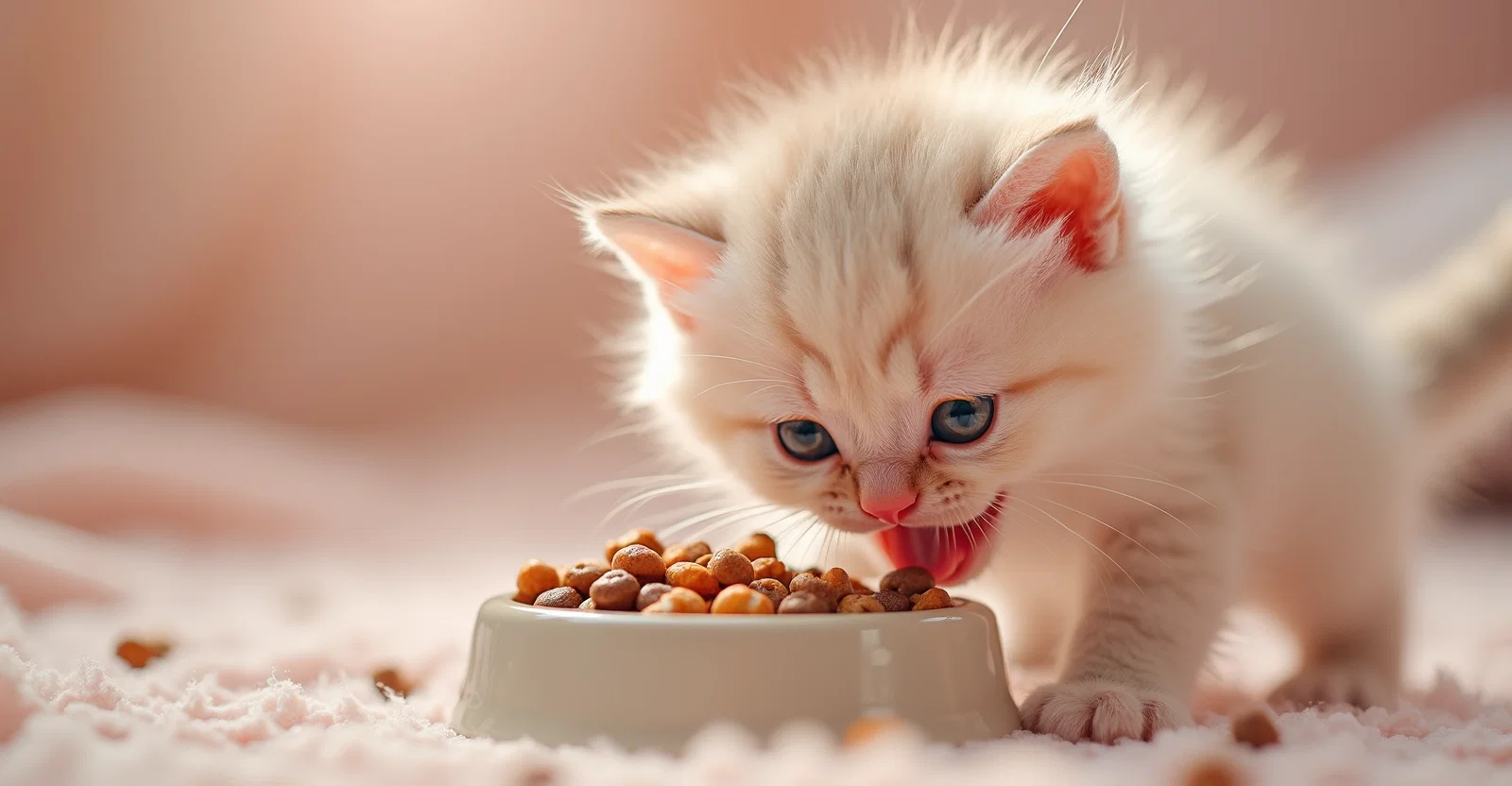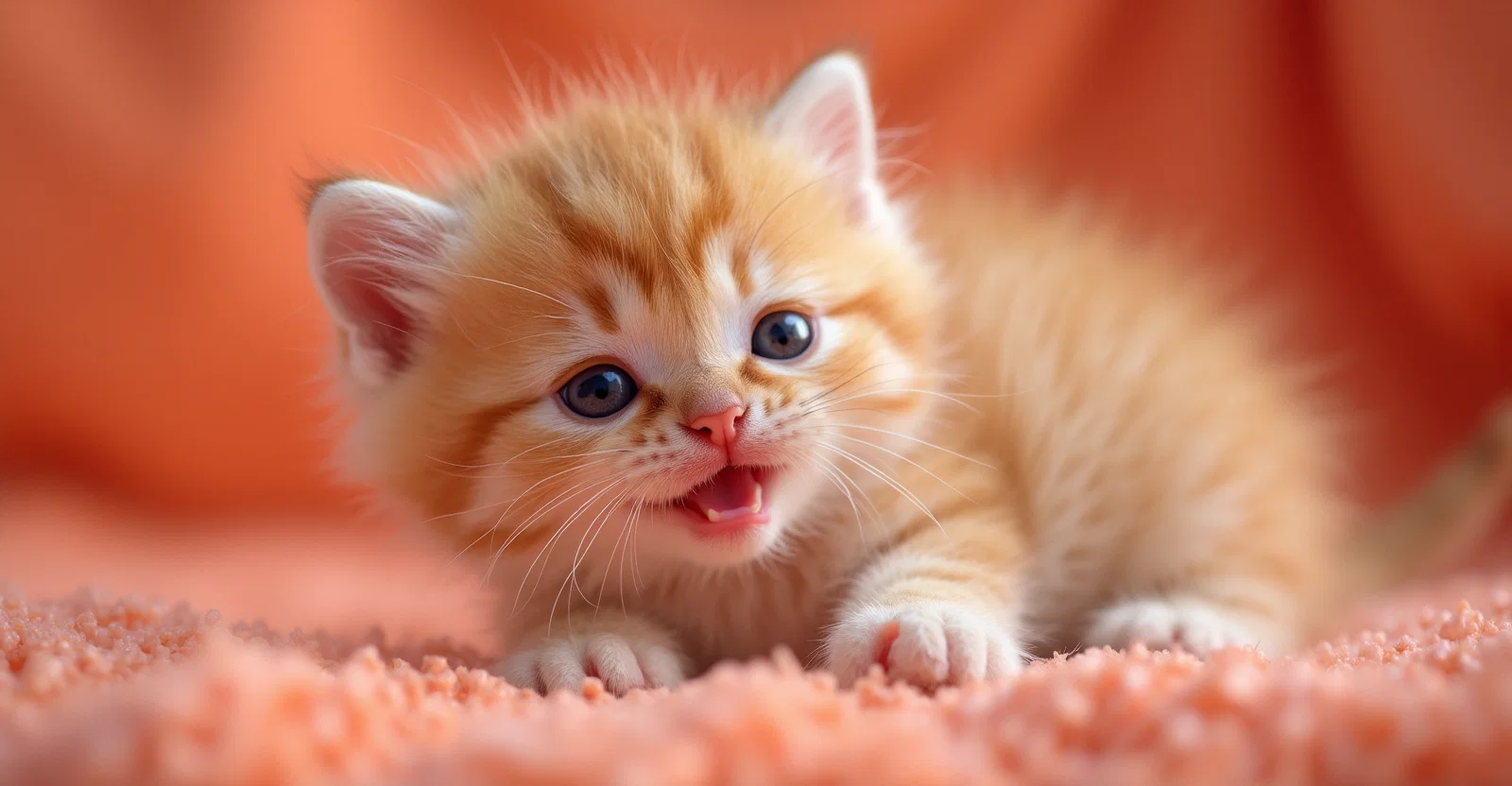
Essential Nutrients for Kittens: The Role of Proteins, Fats, and Carbohydrates
Proper nutrition is vital for your kitten’s health and well-being. Like growing children, kittens need specific nutrients to reach their full potential.
Why Do Kittens Have Different Nutritional Needs?
Kittens use more energy than adult cats. They grow, develop, and explore the world constantly, which creates special nutritional requirements. The three main nutrients in your kitten’s diet are proteins, fats, and carbohydrates.
Key Facts:
- Water makes up 84% of a kitten’s body weight
- A loss of just 15% of body water can lead to fatal dehydration
Protein in Kittens: Building Blocks for Growth
Proteins are essential in your kitten’s diet. They serve as building blocks for healthy muscles, bones, tendons, blood, and organs. Not all proteins are equal. Cats are obligate carnivores, which means they need animal proteins to survive and cannot thrive on a vegetarian diet.
Best Protein Sources:
- Chicken
- Turkey
- Beef
- Fish (especially salmon, mackerel, and sardines)

These animal products provide all the essential amino acids your kitten needs for development.
Fats: More Than Just Energy
Fats play a vital role in your kitten’s development. They provide dense energy and supply the calories your kitten needs for active play and exploration. Fats also support healthy skin and fur growth and help your kitten’s body absorb essential vitamins.
Best Fat Sources:
- Chicken fat
- Fish oil

Carbohydrates: A Limited Role
Unlike proteins and fats, carbohydrates are not essential nutrients for kittens. Your kitten’s body can survive without carbohydrates. However, digestible carbohydrates can provide fiber and energy.
Carbohydrate Sources for Kittens:
- Grains (such as rice, corn, and wheat)
- Vegetables
- Fruits
It’s best to limit the amount of carbohydrates in your kitten’s food, as too many can cause digestive issues and weight gain.
How to Choose Kitten Food
The many kitten food options at the supermarket can be overwhelming. Here are tips to help you make the right choice:
- Look for “Kitten Food”: Kittens have different nutritional needs than adult cats. Choose food made specifically for kittens.
- Check for “Complete and Balanced”: This label means the food contains all nutrients your kitten needs for growth and development.
- Read the ingredient list: Ingredients appear by weight. Meat or fish should be among the first few ingredients.
- Choose a known company: Pick brands with strong reputations for quality and nutrition.
- Consult your vet: Your vet can recommend the best food for your kitten’s specific needs.
How to Apply These Nutrition Guidelines
- Feed your kitten several small meals throughout the day
- Ask your vet about the right amount of food based on your kitten’s age and activity level
- Keep fresh water available at all times
- Limit treats
- Avoid sudden changes in your kitten’s food
Summary
Your kitten’s diet should contain protein, fat, and limited carbohydrates for healthy growth and development. By choosing the right food and following these nutrition tips, you can help your kitten grow into a healthy, active cat.
How do you feed your kitten? Share your favorite kitten food brands or pet nutrition tips in the comments!
